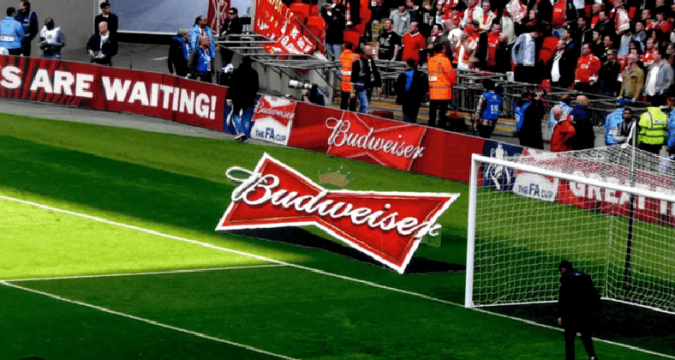
In the competitive world of professional football, clubs are constantly seeking new ways to secure the financial stability and resources necessary to achieve success both on and off the pitch. Sponsorship deals have become a critical component of this strategy, providing clubs with essential funding while also enhancing their global brand presence. The art of securing and managing these sponsorship deals is a complex business, requiring a blend of strategic planning, relationship management, and marketing savvy.
The Evolution of Sponsorship in Football
Sponsorship in football has evolved significantly over the past few decades. Gone are the days when a sponsor’s logo on a team jersey was the pinnacle of brand partnership. Today, sponsorship deals encompass a wide range of activities, including naming rights for stadiums, exclusive digital content, community engagement programs, and even bespoke product collaborations. This evolution reflects the increasing sophistication of both clubs and sponsors in leveraging their partnerships for mutual benefit.
The Value of Sponsorship
For football clubs, sponsorship deals are not just about money; they are about building long-term relationships that can enhance the club’s brand and reach. Sponsorships provide vital revenue streams that can be reinvested in the club, whether it’s for player acquisitions, youth development programs, or state-of-the-art training facilities. In turn, sponsors gain access to the club’s passionate fan base, which can drive brand loyalty and consumer engagement.
Securing Sponsorship Deals
Securing a winning sponsorship deal starts with understanding the club’s brand and its audience. Football clubs need to present themselves as valuable partners, capable of delivering substantial returns on investment for potential sponsors. Clubs often employ dedicated commercial teams or partner with specialized agencies to identify potential sponsors and negotiate deals.
A critical factor in securing sponsorship deals is the club’s on-field performance. Successful teams with high visibility in domestic leagues and international competitions are more attractive to sponsors. However, clubs that may not be at the top of the table can still secure lucrative deals by highlighting unique aspects of their brand, such as their history, community involvement, or innovative marketing strategies.
The Role of Digital Media
In the digital age, social media and online platforms play a crucial role in sponsorship deals. Clubs with strong digital presences can offer sponsors unprecedented access to their fans through targeted content, interactive campaigns, and real-time engagement. For example, clubs can create exclusive behind-the-scenes content for sponsors, run co-branded social media contests, or even develop custom apps that feature sponsor integration. These digital activations provide measurable results for sponsors and can significantly enhance the value of the sponsorship deal.
Managing Sponsorship Relationships
Once a sponsorship deal is secured, the real work begins. Managing the relationship with sponsors requires ongoing communication, creativity, and a commitment to delivering on promises. Clubs need to ensure that sponsors receive the agreed-upon exposure and engagement, whether through stadium signage, media mentions, or exclusive events. Regular performance reviews and feedback sessions help keep the partnership on track and identify opportunities for enhancement.
Successful clubs often go above and beyond to delight their sponsors. This might include personalized experiences, such as VIP matchday hospitality, meet-and-greets with players, or unique merchandise. By fostering a strong relationship, clubs can turn sponsors into long-term partners who are willing to invest more significantly in the club’s future.
Case Study: A Winning Sponsorship Deal
Consider the case of a prominent Premier League club that secured a multi-million-pound deal with a leading technology company. The partnership went beyond traditional sponsorship to include technological enhancements at the club’s stadium, exclusive digital content for fans, and joint community initiatives. The club’s commercial team worked closely with the sponsor to integrate their brand seamlessly into the fan experience, resulting in a highly successful partnership that boosted the club’s revenue and enhanced the sponsor’s brand visibility.
The Future of Sponsorship in Football
The landscape of football sponsorship is continually evolving. As clubs and sponsors become more sophisticated, we can expect to see even more innovative and integrated partnerships. Emerging technologies like virtual reality, augmented reality, and blockchain could open up new avenues for fan engagement and sponsorship activation. Moreover, the growing importance of social and environmental responsibility means that future sponsorship deals are likely to place greater emphasis on community impact and sustainability.
Sponsorship deals are a vital lifeline for football clubs, providing the financial resources needed to compete at the highest levels. The business behind these deals is complex and multifaceted, requiring clubs to be strategic, innovative, and proactive in their approach. By understanding their brand, leveraging digital media, and building strong relationships with sponsors, football clubs can secure winning sponsorship deals that drive success both on and off the pitch. As the industry continues to evolve, the clubs that can adapt and innovate will be the ones that thrive in the competitive world of professional football.